Animal Licensing Guidance Notes
The Animal Welfare (Licensing of Activities Involving Animals) (England) Regulations 2018
The above regulations came into force on 1 October 2018 and have an impact on establishments licensed under the previous animal health legislation. This includes those previously licensed as pet shops, catteries, kennels, home boarders, dog crèche, riding establishments, dog breeders and performing animals.
The regulations can be a viewed on the legislation.gov.uk website.
The guidance and FAQs below will provide more details of the new system of regulation.
Frequently Asked Questions
+ What licensing activities require a licence?
A licence is required when any of the licensable activities outlined in Schedule 1 of the regulations are undertaken. These are:
- selling animals as pets (Part 2);
- providing or arranging for the provision of boarding for cats or dogs (including the provision of boarding for cats; kennels for dogs; home boarding for dogs; or day care for dogs (Part 3);
- hiring out horses (Part 4);
- breeding dogs (Part 5);
- keeping or training animals for exhibition (Part 6).
+ Who can apply for a licence?
Any individual, who will be designated as the operator of the business, can apply for a licence providing they:
- can demonstrate that they are a fit and proper person to carry out the licensable activity and meet the licence conditions; and
- are not disqualified from holding a licence in accordance with Regulation 11 and Schedule 8.
+ How do I apply for a licence?
Licence applications must be submitted in writing, along with supporting documentation and the appropriate fee.
We will notify licence holders when their existing licence will expire (3 months prior to expiry) and licence holders must make a new application at least 10 weeks before the licence expires to continue the activity without a break.
+ What standards/conditions will I be expected to meet to obtain a licence?
DEFRA has produced mandatory conditions and associated guidance for each licensable activity. These are divided into two categories, namely General Conditions (stipulated in Schedule 2) and Specific Conditions from the associated Schedule of the Regulations.
You will need to meet the requirements of all the minimum standards, although minor failings may be noted/recorded providing they do not compromise the welfare of the animals (these should be predominantly administrative in nature).
In addition, each licensable activity (with the exception of the keeping or training animals for exhibition) also stipulates further optional conditions for “Higher Standards”.
Specific details will be stipulated on the inspection report.
+ How is the risk rating assessed?
Existing operators will be risk rated against a standard 14 point criteria checklist which considers a number of factors relating to compliance history, complaints, welfare standards and management standards. This scoring system will determine if they are rated as either low (a score of 17 or less) or high (a score of 18 or more).
All new businesses which do not have compliance history with a Local Authority or UKAS accredited scheme will be rated as high risk.
Licences for the keeping or training animals for exhibition are not risk rated.
+ What are the "higher standards"?
+ How long will my licence last?
Licences can be issued for a period of either one, two or three years depending on the risk rating and level of compliance. This also corresponds with the star rating for the establishment.
See scoring matrix below.
| Scoring Matrix | Minor Failings (existing business that are failing to meet minimum standards) |
Minimum Standards (as laid down in the schedules and guidance) |
Higher Standards (as laid down in the guidance) |
|---|---|---|---|
| Low Risk | 1 Star 1yr licence Min 1 unannounced visit within 12 month period |
3 Star 2yr licence Min 1 unannounced visit when 24 month period |
5 Star 3yr licence Min 1 unannounced visit within 36 month period |
| Higher Risk | 1 Star 1yr licence Min 1 unannounced visit within 12 month period |
2 Star 1yr licence Min 1 unannounced visit within 12 month period |
4 Star 2yr licence Min 1 unannounced visit within 24 month period |
+ How much does a licence cost?
+ How is the licence application assessed?
All licence applications will be assessed based on the following criteria:
- an assessment of the operator (applicant) as to whether they are a fit and proper person to carry out the licensable activity, their knowledge, experience, compliance history, ability to meet their licence conditions and whether they are currently disqualified from making an application;
- an inspection of the site of the licensable activity by a suitably qualified inspector (and where applicable accompanied by a registered veterinarian);
- the submission of the inspectors report which will contain information about the operator, details of the premises, records, conditions of the animals, the risk rating score, compliance details and a statement on whether licence conditions will be met;
- the payment of the appropriate licence fee.
+ What information is provided with the licence?
Where a licence is issued, we will provide the following details:
- the Licence with the star rating;
- details of how the business has been rated including a list of the higher standards the business currently fails to meet or a list of the minimum standards the business is failing to meet and resulting in a “minor failing” category;
- a copy of the risk management assessment table;
- details of the appeals process and timescales.
+ What if my application is refused?
We will consider the report from the inspector and any comments made by the applicant when deciding whether to issue a licence.
We must refuse to issue a licence if it considers that the applicant cannot meet the licence conditions, the granting of a licence will have a negative impact on animal welfare or if the level of accommodation, staffing or management is inadequate for the well-being of animals. A licence cannot be issued to an operator who is disqualified.
The applicant will have the right of appeal to a First-tier Tribunal within 28 days of the decision notice.
+ What can I do if I am unhappy/disagree with the star rating awarded to me?
To ensure fairness to the business, we must have an appeals procedure in place for the operator to dispute the star rating given.
The business will be provided with supportive information (the inspection reports) which will highlight the inspecting officer’s decision on how the risk rating, compliance level and star rating has been determined.
The appeal must be made in writing within 21 days and will be assessed and determined by an appointed manager within the Department. If the business disagrees with the outcome of the appeal they can challenge the decision by means of judicial review.
The business is encouraged to discuss the matter initially with the inspecting officer where possible.
A business may wish to apply for a re-inspection or re-rating on a chargeable basis following completion of works to rectify any non-compliance or improvements to achieve higher standards.
+ What will happen if I do not comply with the conditions of my licence?
The new Regulations introduce a range of enforcement powers to allow us to issue a suspension, variation or revocation notice where licence conditions are not being complied with; there is a breach of the regulations or issues relating to the protection of the welfare of an animal.
The service of an enforcement notice is subject to a strict process and includes for the provision of the right to representation and appeal.
+ What advice and guidance is available?
Operators must meet the mandatory conditions issued by DEFRA.
Where operators wish to discuss the application process and seek guidance on compliance and more detailed advice, a pre-application visit/discussion can be arranged on a chargeable basis.
+ Are the licence details and star rating displayed?
DEFRA has encouraged councils to maintain a list of licensed businesses and their associated ratings on their websites.






